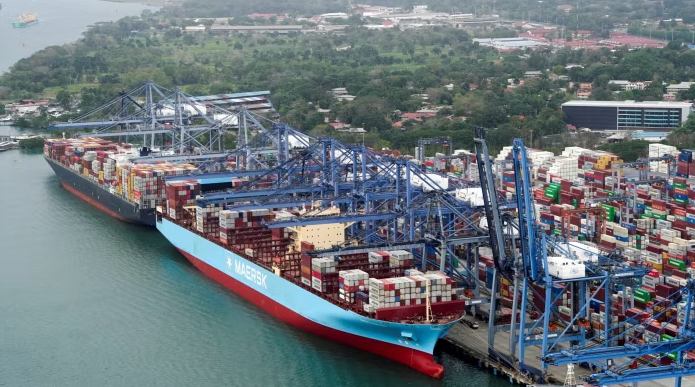A major business deal involving two important ports near the Panama Canal has been unexpectedly put on hold. The deal was led by a large US-based investment group and was expected to be finalized soon. However, Chinese regulators have stepped in, launching an investigation that has delayed the signing process.
Major Port Deal Delayed by Chinese Antitrust Investigation
China’s State Administration for Market Regulation (SAMR), the country’s top market watchdog, announced that it is reviewing the sale to ensure fair competition and protect public interest. The announcement was first reported by a state-owned Chinese newspaper and later confirmed on official government websites.
The ports in question are currently controlled by a Hong Kong-based company, which had agreed to sell them as part of a much larger transaction. The deal included the sale of ownership stakes in 43 ports across 23 different countries. The US-led consortium, which includes one of the world’s largest asset management firms, had agreed to take over these ports, including the two in Panama.
The investigation by Chinese regulators has now cast uncertainty over the future of this agreement. A source close to the Hong Kong company confirmed that the deal’s official signing, which was planned for the upcoming week, will not proceed as scheduled. The delay has raised questions about China’s role in global trade and the growing tensions between economic superpowers.
Panama Canal’s Strategic Importance and US Concerns
The Panama Canal is one of the most important waterways in global trade. It connects the Atlantic and Pacific oceans, allowing ships to travel between the two without having to take the long and costly route around South America. This 51-mile-long canal is crucial for both commercial and military vessels.
Approximately 4% of the world’s total maritime trade passes through the canal, making it a key shipping route. For the United States, the canal is even more vital—over 40% of US container shipments rely on it to transport goods between its coasts and to other global markets.
China Freezes Business Ties with Li Ka-shing Over Panama Ports Deal
The canal itself was built by the United States in the early 20th century and was operated by the US government for most of its history. However, after a controversial agreement, control of the canal was officially handed over to Panama in 1999. Despite this transfer, the United States has continued to maintain a strong interest in the canal’s operations and security.
The canal is also a major economic asset for Panama. In 2024 alone, it generated nearly $5 billion in profit. A study by IDB Invest found that almost a quarter—23.6%—of Panama’s total annual income comes from the canal and businesses that provide services related to it.
Even though the canal is fully controlled by Panama, concerns have been raised about the presence of Chinese companies in the region. China already owns ports on both the Atlantic and Pacific sides of the canal. This has led to worries in the United States about potential Chinese influence over trade routes.
U.S. Warns Panama Over China’s Canal Influence: Trump Threatens Action
US officials have also expressed concerns about the fees that American ships must pay to use the canal. Some have argued that since the United States would be responsible for defending the canal in case of an attack, American ships should be allowed to pass through it without any charges. These discussions have added another layer of complexity to the already tense trade relationship between the US and China.
Trade Tensions and Economic Pressures
The delay in the Panama port sale is happening at a time of increasing trade tensions between the United States and China. The US government recently announced a 20% tariff on all Chinese imports, which has put additional pressure on businesses that operate between the two countries. In response, China has taken its own economic measures, increasing regulatory scrutiny on foreign investments and trade agreements.
The investigation by China’s regulators may be seen as part of this broader trade dispute. While the official reason given is to protect fair market competition, some analysts believe it could be linked to the ongoing economic tensions between the two global powers.
Trump’s White House Ordered Pentagon to Develop Military Options for Panama Canal
For now, the immediate impact of the investigation is the delay of the port deal. This agreement was originally seen as a way to reduce tensions and promote economic cooperation. However, with Chinese regulators now stepping in, the future of the deal remains uncertain.
As trade disputes between the United States and China continue, the outcome of this investigation will be closely watched. The situation surrounding the Panama Canal highlights how global trade and politics are deeply connected, affecting businesses, governments, and economies around the world.

